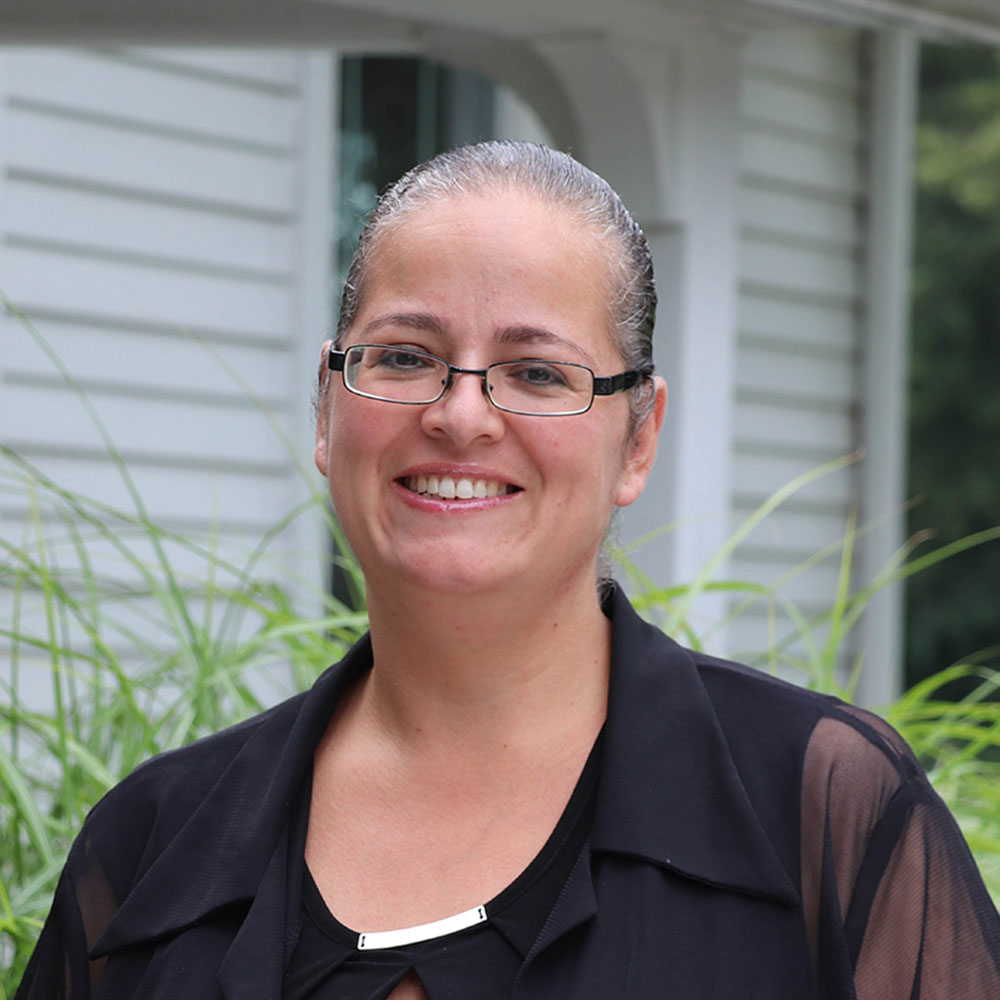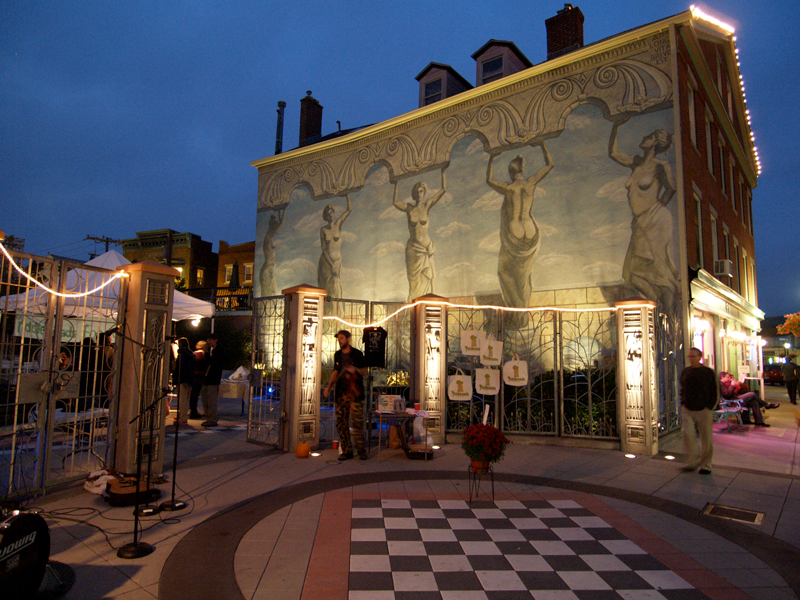PREPARING STUDENTS FOR POSTGRADUATE SUCCESS
INDIVIDUALIZED, MULTI-LEVEL SUPPORT
-
- Individualized Attention
- Personal Exploration
- Occupational and Research-based Skills Training
- Social Embeddedness
- Lifelong Connections
PROGRAM STRUCTURE
-
- AIM Basics — Independent Living and Life Skills
- Career Intensive/Focused
- Academic Exploration/Graduate School
-
- Skill Development Workshops
- Career Prep and Job Discovery
- Experiential Learning
- Community Connections and Experiences (Cohort Development)
Program Terminology
Community Governance
The college-owned housing will be guided through a form of self-governance. The participants in the program will set the community guidelines and rules of the house under the guidance of the program coordinator and mentors.
Emotional Intelligence
The ability to be aware of, manage, and express one’s emotions, and to negotiate interpersonal relationships thoughtfully and compassionately.
Financial Literacy
Holistic Wellness
An approach to wellness that considers the whole person caring for the mind, body and spirit. It incorporates physical, mental, emotional, social, intellectual and spiritual wellness, as well as the individual’s environment.
Independent Living
The ability to exercise the greatest degree of choice about where one lives, works and socializes. It goes beyond living on one’s own, but is about self-determination and includes being employed in work that matched ones’ interests, capabilities and skills while having an active and safe social life.
Neurodivergent
There is an increasing awareness and understanding in our society that some people have brain differences that affect how their brain works. The term often used to capture these differences is neurodivergent. Neurodivergent individuals have different strengths, and challenges, from people whose brains don’t have those differences. Possible differences include medical disorders, learning disabilities and other conditions. Neurodivergence manifests in many different ways, from very subtle ways that most people would never notice to more obvious ways that lead to a person behaving differently than is considered “typical” in our society.
Service/Community Engagement
Working collaboratively with and through community groups or affiliations. This requires intentional interactions between program participants and the communities in which they live and work.
STAIRs Events Calendar
[Coming Soon!]


The STAIRs program builds on the inclusive nature of the Mitchell College educational experience, offering recent college graduates additional guidance, tools, and support for success in their next steps.
Alicia Martinez, E.D., M.S.O.L.
Dean, Student Experience and Belonging, Chief Student Affairs Officer




CORE PROGRAM COMPONENTS
All students complete the AIM Basics program, which incorporates independent living, career readiness, social/interpersonal skills, and holistic wellness in a supportive environment with the goal of producing self-sufficient adults ready to pursue independence and sustain employment.
Once students have completed this foundational portion of the program, they can select one concentrating program on career readiness or graduate study. Below are the skill areas that will be developed through the program.
Independent Living
-
- During Year 1, students live in a college-owned house located near, but not on, the Mitchell College campus. Second-year participants will move into local housing and commute to campus for workshops and community events.
- Guided Community Governance/Self-Governance
- Independent Living Skills/Workshops
- Cooking classes resulting in preparation of community meals
- Financial literacy and banking
- Assistance identifying and applying for local apartments prior to Year 2
Career Readiness
-
- Career Workshops: Resume writing, interview skills, Group Career Assessments, etc.
- Employee Rights and Employment Accommodations
- Service Learning
Social, Emotional & Interpersonal Skills Development
-
- Workshops: Healthy Relationships, Care-frontation techniques, self-advocacy, growth mindset, etc.
- Participation in local clubs and community organizations
- Interaction with Mitchell College Students and Staff
Holistic Wellness
-
- Nutrition and Wellness Activities
- Personal Fitness Training/Self-Defense
- Hygiene Practices
- Healthy Relationships and Boundary setting
AIM BASICS PROGRAM: Sample Schedule
This schedule is provided as a sample only. Activities and times subject to change.
| Monday/Wednesday | |
| 9:30am | Independent Living |
| Noon | Lunch |
| 1:00pm | Career Exploration/Readiness |
| 3:00pm | Fitness/Active Learning |
| 5:00pm | Dinner |
| Tuesday/Thursday | |
| 9:00am | Emotional Intelligence/Socioeconomic Learning |
| 11:00am | Holistic Wellness Workshops/Cooking Basics |
| 12:15pm | Lunch |
| 1:30pm | Service/Community Engagement |
| 4:00pm | Club/Group Activity |
| 5:00pm | Dinner |
| Friday | |
| 9:00am | Financial Literacy /Critical Thinking |
| Noon | Lunch |
| 1:00pm | Service Learning Reflective Exercise |
| 3:30pm | Fitness/Active Learning |
| 5:00pm | Dinner |
| 7:00pm | Community Governance/Group Activity |
| Saturday/Sunday | |
| Grocery Shopping | |
| Recreational Events/Outings | |
| Spirituality/Religious Services (or practicing) |
THE STAIRs HUBS
Students who have successfully met the benchmarks for the AIM Basics Program are able to transition into one of two STAIRs hubs. Descriptions of the hubs, along with sample schedules, are below.
Hub #1 — Career Intensive/Focused
Hub #2 — Academic Exploration/Graduate School
Hub #1 — Career Intensive/Focused
In contrast to popular belief, finding a career that matches your skillset and that you love is not easy. It is a process that takes time and requires patience, self-awareness and some exploration. STAIRs’ Career Intensive Hub was developed to support students with diverse or undecided career goals through this process as they explore interests and passions while building the skills necessary to be successful in their chosen fields.
Program Stages
-
- Career Exploration — Identify Areas of Interest and Capacity
- Goal Setting and Workforce Preparation
- Internship/Employment Search and Application
- Universal Technical and Soft Skills Training
Benchmarks
-
- Baseline Competencies
- Targets
- Final Assessment
Career Intensive Sample Schedule
This schedule is provided as a sample only. Activities and times subject to change.
| Monday/Wednesday | Monday/Wednesday | ||
| 8:30am | Group Check-in/Advising | 8:30am | Group Check-in/Advising |
| 9:00am–1:00pm | Work/Internship | 9:00am–Noon | Work-Based Skills Lab |
| 1:30pm | Lunch | 12:30pm | Lunch |
| 2:30–5:30pm | Work-Based Skills lab | 1:30–5:30pm | Work/Internship |
| 6:00pm | Dinner | 6:00pm | Dinner |
| Tuesday/Thursday | Tuesday/Thursday | ||
| 8:30am | Group Check-in/Advising | 8:30am | Group Check-in/Advising |
| 9:00am–1:00pm | Work/Internship | 9:00am–Noon | Career Seminars/Service |
| 1:30pm | Lunch | 12:30pm | Lunch |
| 2:30–5:30pm | Career Seminars/Service | 1:30–5:30pm | Work/Internship |
| 6:00pm | Dinner | 6:00pm | Dinner |
| 7:00pm | Club/Group Activity | 7:00pm | Club/Group Activity |
| Friday | Friday | ||
| 9:00am | Financial Literacy | 9:00am | Financial Literacy |
| Noon | Lunch | Noon | Lunch |
| 1:00pm | Service/Internship Reflective Exercise | 1:00pm | Service/Internship Reflective Exercise |
| 3:30pm | Fitness/Active Learning | 3:30pm | Fitness/Active Learning |
| 5:00pm | Dinner | 5:00pm | Dinner |
| 7:00pm | Community Governance/Group Activity | 7:00pm | Community Governance/Group Activity |
| Saturday/Sunday | Saturday/Sunday | ||
| Grocery Shopping | Grocery Shopping | ||
| Recreation Events/Outings | Recreation Events/Outings |
Hub #2 — Academic Exploration/Graduate School
The Graduate School preparedness hub will support students with a bachelor’s degree as they create effective application packets for graduate programs of their choosing, and provides students with opportunities to grow and practice the skills they will need for success in their graduate education.
Program Stages
-
-
- Academic Skills Development — Develop the Skills Needed to Succeed in Graduate School
- Program Identification & Exploration — Find Appropriate Programs for Particular Career and Academic Goals
- Application Preparation — Develop Effective Graduate School Applications
- Graduate Program Exploration
-
Benchmarks
- Passion for the subject area or field in your chosen graduate course of study
- Ability to successfully complete a graduate program
- Reason for attending graduate school in a certain field; understanding of how graduate study will help achieve your goal
Outputs
- Demonstrate Readiness Skills
- Identify Graduate Program(s)
- Prepare for Application
Academic Exploration: Sample Schedule
This schedule is provided as a sample only. Activities and times subject to change.
| Monday/Wednesday | |
| 9:30am–12:30pm | TBD |
| 1:00pm | Lunch |
| 2:30–5:30pm | TBD |
| 6:00pm | Dinner |
| Tuesday/Thursday | |
| 9:00am | TBD |
| 11:00am | TBD |
| 12:15pm | Lunch |
| 1:30pm | Academic Skills Lab |
| 4:00pm | Club/Group Activity |
| 5:00pm | Dinner |
| Friday | |
| 9:00am | Financial Literacy; Student loan repayment, graduate expenses, etc. |
| Noon | Lunch |
| 1:00pm | Service/Internship Reflective Exercise |
| 3:30pm | Fitness/Active Learning |
| 5:00pm | Dinner |
| 7:00pm | Community Governance/Group Activity |
| Saturday/Sunday | |
| Grocery Shopping | |
| Recreational Events/Outings |
How to Apply
It is recommended that students and families attend a virtual information session and consider scheduling an in-person visit prior to applying.
STEP 1: Attend Information Session
Click to Register for Information Session
STEP 2: Complete Application Form
STEP 3: Complete Interview
Eligible applicants will be invited to attend a virtual interview with the review committee to confirm fit/eligibility for the program.
Deadlines
Program Admission
To be eligible for the STAIRs program, applicants must meet the following criteria:
- Has basic mathematics understanding; can use a calculator
- Can utilize technology (cell phone, laptop, etc.) on a basic level
- Primary disability must be cognitive, not behavioral or emotional
- Has the ability to independently self-administer and manage medication, specialized dietary, and/or medical needs
Note: STAIRs personnel are not available to manage/administer medication and take no responsibility for specialized diets or medical needs. - Has parents/support system who will support his/her independence
Program Cost
12-month Program Fee = $25,000
Housing (Year 1) = $10,000*
Includes furnished room, utilities and other amenities.
Meal Plan = Varies**
Activities Fee = $1,500
Total Year 1 = $36,500
Total Year 2 = $26,500
* Year 2 housing is optional; no residency requirement.
** Costs are determined by selected meal plan. Meals served in Dining Hall during regular hall hours. NOTE: Dining Hall is closed during certain holidays and breaks.
HOUSING
Overview
Throughout the STAIRs program, participants benefit from being in a community environment. The program’s central location in a residential New London neighborhood — just blocks from Mitchell College and other amenities — offers a wide range of experiences and opportunities for learning to live independently in a small city rich with resources:
- Recreational/Excercise Activities
- Diverse Natural Environments (Mitchell beach, Mitchell woods, public beaches and parks)
- Downtown New London: dining, shopping, entertainment, historic and cultural landmarks
As part of a close cohort, students gain skills and confidence through the structural design of the program:
- Guided Community Governance/Self-Governance
- Hub Communities
- Community Library
- Skills Development Center
YEAR 1: AIM Basics — Residency Required
The residential experience in Year 1 is an important part of the AIM Basics program, giving participants the experience of living and learning as part of a “family” style community.
- Single- and double-room occupancy options
- Community kitchen and social lounge
Year 2: Option to Live Off-site
After particpants have completed the AIM Basics program they are encouraged to move into a more independent living situation in New London or the surrounding area.

Eastwinds, home base for STAIRs, is located in a charming historic home in a quiet residential neighborhood on the banks of the Thames River in New London, CT.

Above and below: Views of the river from Eastwinds.

STAIRs PROGRAM STAFF

Alicia Martinez, Ed.D., M.S.O.L.
Dean of Student Experience and Belonging,
Chief Student Affairs Officer
Duques Center
860-701-7708
martinez_a@mitchell.edu

Alexandria "Alex" Donkor
Director of Residence Life and Student Conduct
Duques Center 211
860-701-5045
donkor_a@mitchell.edu

Gizelle Tircuit, Ph.D., L.P.C
Director of Health and Wellness
Health Center
Yarnall Center 2nd Floor
860-701-5103
tircuit_g@mitchell.edu

Paul Dunn
Integrative Career Development Coordinator
Duques Center 213
860-701-7739
dunn_p@mitchell.edu